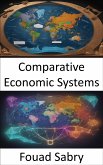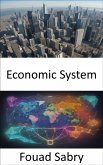What is Free Market
In economics, a free market is an economic system in which the prices of goods and services are determined by supply and demand expressed by sellers and buyers. Such markets, as modeled, operate without the intervention of government or any other external authority. Proponents of the free market as a normative ideal contrast it with a regulated market, in which a government intervenes in supply and demand by means of various methods such as taxes or regulations. In an idealized free market economy, prices for goods and services are set solely by the bids and offers of the participants.
How you will benefit
(I) Insights, and validations about the following topics:
Chapter 1: Free market
Chapter 2: Capitalism
Chapter 3: Classical liberalism
Chapter 4: Market economy
Chapter 5: Mixed economy
Chapter 6: Private property
Chapter 7: Laissez-faire
Chapter 8: Economic interventionism
Chapter 9: Economic system
Chapter 10: The Road to Serfdom
Chapter 11: Spontaneous order
Chapter 12: Anarchism and capitalism
Chapter 13: Price system
Chapter 14: Criticism of socialism
Chapter 15: Criticism of libertarianism
Chapter 16: Anglo-Saxon model
Chapter 17: Economic ideology
Chapter 18: The Use of Knowledge in Society
Chapter 19: Economic liberalism
Chapter 20: Democratic socialism
Chapter 21: Socialist calculation debate
(II) Answering the public top questions about free market.
(III) Real world examples for the usage of free market in many fields.
Who this book is for
Professionals, undergraduate and graduate students, enthusiasts, hobbyists, and those who want to go beyond basic knowledge or information for any kind of Free Market.
In economics, a free market is an economic system in which the prices of goods and services are determined by supply and demand expressed by sellers and buyers. Such markets, as modeled, operate without the intervention of government or any other external authority. Proponents of the free market as a normative ideal contrast it with a regulated market, in which a government intervenes in supply and demand by means of various methods such as taxes or regulations. In an idealized free market economy, prices for goods and services are set solely by the bids and offers of the participants.
How you will benefit
(I) Insights, and validations about the following topics:
Chapter 1: Free market
Chapter 2: Capitalism
Chapter 3: Classical liberalism
Chapter 4: Market economy
Chapter 5: Mixed economy
Chapter 6: Private property
Chapter 7: Laissez-faire
Chapter 8: Economic interventionism
Chapter 9: Economic system
Chapter 10: The Road to Serfdom
Chapter 11: Spontaneous order
Chapter 12: Anarchism and capitalism
Chapter 13: Price system
Chapter 14: Criticism of socialism
Chapter 15: Criticism of libertarianism
Chapter 16: Anglo-Saxon model
Chapter 17: Economic ideology
Chapter 18: The Use of Knowledge in Society
Chapter 19: Economic liberalism
Chapter 20: Democratic socialism
Chapter 21: Socialist calculation debate
(II) Answering the public top questions about free market.
(III) Real world examples for the usage of free market in many fields.
Who this book is for
Professionals, undergraduate and graduate students, enthusiasts, hobbyists, and those who want to go beyond basic knowledge or information for any kind of Free Market.
Dieser Download kann aus rechtlichen Gründen nur mit Rechnungsadresse in A, B, BG, CY, CZ, D, DK, EW, E, FIN, F, GR, H, IRL, I, LT, L, LR, M, NL, PL, P, R, S, SLO, SK ausgeliefert werden.









